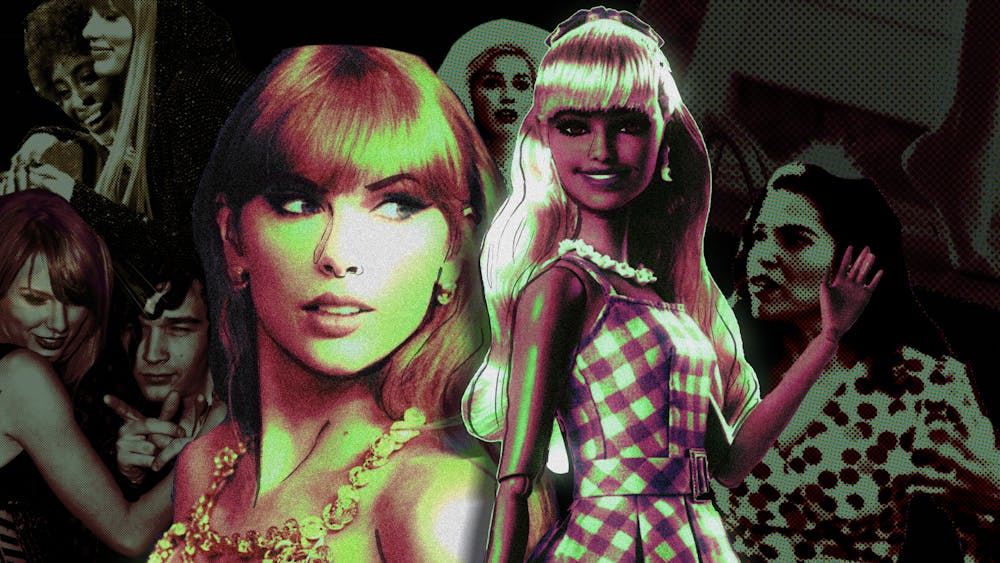"Barbie" will cap off its 10th week in the box office’s top five this week after earning over $1.4 billion worldwide, making it the 14th highest-grossing movie of all time. Even prior to its release, "Barbie" assumed a polarizing cultural cachet due to its treatment of feminism, womens’ issues, the patriarchy, and representation. That attention only exploded after the movie hit theaters, with conservative pundit Ben Shapiro burning Barbie merchandise while much of the internet fawned over the film’s feminist messaging.
After recently watching the movie, I left the theater wholly confused as to what the controversy consisted in. To the demerit of both sides, I struggled to find any groundbreaking feminist moments that could have ignited cultural conservatives’ incendiary backlash and ubiquitous accusations of wokeism.
For example, America Ferrera’s monologue about the contradictory expectations embedded in womanhood read off like an early second-wave feminist diatribe. What then about the "Barbie" movie was supposedly so radical? Admittedly, not much. The most subversive statement of the movie was when Barbie confidently proclaims to her literal maker, Ruth Handler: “I want to be a part of the people that make meaning, not what’s being made.”
Yet, does Barbie — or Woman — really escape her place as what’s being made? We must acknowledge and reckon with the fact that the Barbie movie was co-produced by Mattel, the parent company which owns and makes Barbie, the brand. With that in mind, it's impossible not to view "Barbie" through a lens tinted by commodification and profit incentives.
And if radical feminism is so palatable as to be profitable, is it still radical? Of course, "Barbie" doesn’t need to be radical and there is merit in using a culturally intelligible brand as a vehicle to popularize feminist themes.
To this point, Barbie has served as an important microcosm for feminist discourse during the last 75 years. However, Barbie remains a piece of plastic — not a woman — and this is crucial to understanding why the positioning of Barbie is harmful. Allowing Barbie to remain at the center of the cultural conversation around feminism means we have granted Mattel (a multi-billion dollar corporation) the ability to define, and delimit, what a woman is.
Even though it seems obvious that Barbie is a product, ‘she’ is treated as so much more and has been embroiled in controversy since ‘her’ initial release. ‘She’ was charged with perpetuating gendered stereotypes which portrayed women as “sex objects or housekeepers;” ‘she’ came under fire for promoting unhealthy body types and negatively influencing girls’ body image; ‘she’ found ‘herself’ in hot water for being white and not inclusive of our diverse society. And so on.
Representation is critical for how we interpret and in turn construct our own selfhood and identity. By placing so much emphasis on how Barbie represents women, we have implicitly allowed Barbie (and, by extension, Mattel) to define what a woman is — or can be. In an ever-changing world, where marginal identities are increasingly coming into the fore, this is a dangerous game of cat and mouse in which what counts as womanhood is being interpreted by a corporation. The question “what is a woman?” is strictly answered by another, far more important, question to Mattel: “what is profitable?” In this sense, Barbie — and Woman — is still being made, even if women understand themselves as taking a newly active role in that process.
SEE MORE FROM VINAY KHOSLA:
Asian Americans, the model minority myth, and affirmative action
It then becomes clear that no matter how many self-deprecating, satirical moments about Mattel were woven into the "Barbie" plot, the capitalization and commodification of feminism is highly problematic and potentially dangerous. Aside from the pure content of the "Barbie" movie, the status it has assumed in our culture (women breaking up with their boyfriends over it, liberals using it as “a litmus test for healthy masculinity,” etc.) is instead what should be under scrutiny lest we should allow Barbie (read: Mattel) to maintain its chokehold on the representation of womanhood.
And, yet, "Barbie"’s success is just a microcosm of a larger cultural phenomenon around the commodification and sale of supposedly radical feminism. Take, for example, the gigantic success of Taylor Swift’s Eras Tour, which kicked off this summer and recently concluded its domestic segment. Many have claimed that Swift’s evolving discography and messaging has become decidedly feminist over time, culminating in her recent re-record of "All Too Well": the 10-minute version includes the verse “f**k the patriarchy.”
While Swift has clearly suffered at the hands of patriarchal capitalism, instead of meaningfully treating the hegemonic system in her art, she reduces it to an aesthetic that can be claimed by all women (and men) who have been harmed by men, or the systems we understand to represent them. However, she comes up markedly short of a radical critique of the patriarchy, preferring instead diluted, superficial lyrics and — like Barbie — opting to tell rather than show.
Despite this, a major component of Swift’s popularity is that she has become a beacon for what an empowered woman reclaiming her femininity can look like. However, there is a certain level of cognitive dissonance we must adopt to interpret her music as feminist while her silence in the case of Matty Healy certainly suggests otherwise. By doing nothing to address the patriarchy as a structural system while also failing to even take accountability for her own actions — which reproduce patriarchal and racially one-dimensional understandings of feminism and womanhood — the Eras Tour has co-opted feminist language and aesthetics without consequentially incorporating either. Ultimately, the only thing radical about Swift’s claims on feminism is how radically short they fall of the truth.
In both "Barbie" and Swift’s Eras Tour, feminist theory and practice have been commodified in a way which depletes both of all nuance while allowing fans (consumers) to believe they have truly engaged with, and assimilated, meaningful ideas around womanhood, femininity, and feminism. Both also leave fans with the impression that the respective media represents the last all-encompassing word in feminist discourse, and, even worse, that the media in question is therefore above critique — which is facilitated by the parasocial relationships that insulate media and its figures.
Beyond how "Barbie" and the Eras Tour have commodified feminism to necessarily void it of all radicality, they also stand in stark contrast to this summer’s many other moments which proclaim that the patriarchy is alive and well. The misogynistic and queerphobic celebrations of the United States women's national soccer team losing the World Cup; the continued invalidating conversations around Megan Thee Stallion’s victimhood; and the Spanish Football Federation president kissing a player nonconsensually all suggest that, despite “women own[ing] this summer” according to the Wall Street Journal, little has changed. In fact, any implication that the popularity of women-produced media is indicative of a larger cultural shift belies a pervasive subscription to neoliberal understandings of feminism, which will never produce transformative change.
Ultimately, what was on sale this summer wasn’t movie or concert tickets, but the truly radical soul of the feminist movement. And sold, it was.

VINAY KHOSLA is a College junior studying English and political science from Baltimore. His email is vkhosla@sas.upenn.edu.









